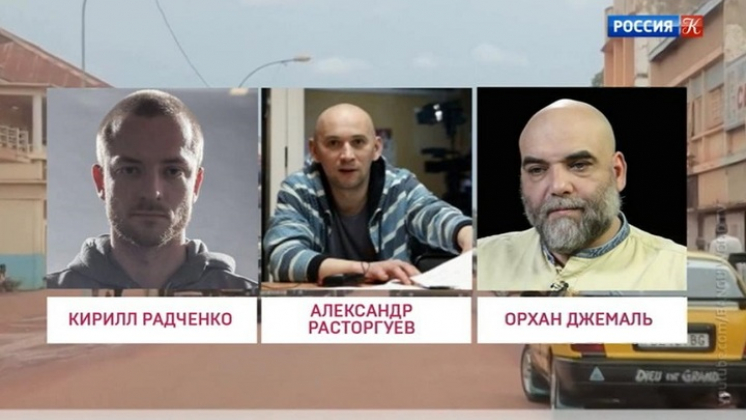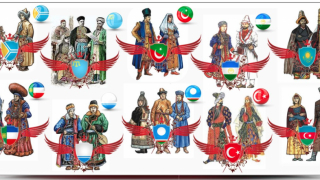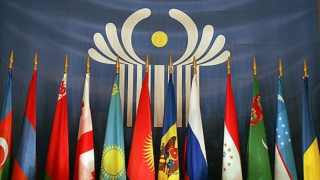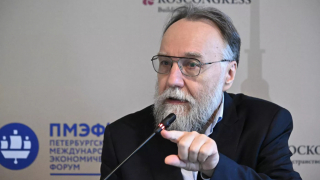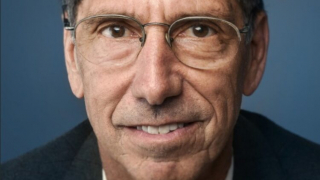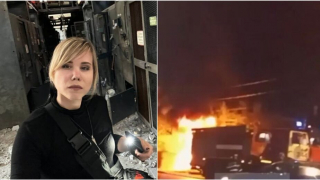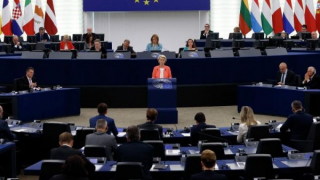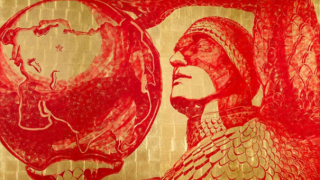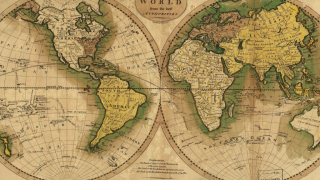Why’d A Former Russian Oligarch Send Journalists To An African War Zone?
Africa Calling
Russia officially dispatched five military advisors and around 170 civilian instructors (PMCs) to CAR at the beginning of this year after receiving approval from the UNSC for this mission, which the author analyzed in the following series of works:
15 December, 2017: “Why Does Russia Want To Sell Arms To The Central African Republic?”
18 January, 2018: “Russia Might ‘Pivot To Africa’ With ‘Mercenaries’”
7 May, 2018: “Russia’s Grand Strategy In Afro-Eurasia (And What Could Go Wrong)”
9 June, 2018: “Russia’s Making Some Smart Moves In The Central African Republic”
21 July, 2018: “BRICS Summit: Russia's Return to Africa”
The gist is that Russia is testing a visionary method for stabilizing African hotspots using a combination of “Lead From Behind” PMC support and the diplomatic “balancing” experience acquired throughout the course of the Syrian campaign, all of which come together to rebuild state capacities.
Giving Failed States Hope
As Johannesburg-based Zimbabwean geopolitical expert Kwanele Mkheswa explained during his interview in the last-mentioned Radio Sputnik link above, the greatest value-added differentiator that Russia can provide to Africa is assisting with its security and facilitating the creation of a peaceful environment that enables the state to restore governance and thenceforth begin delivering on developmental promises to its people. CAR can consequently be reconceptualized as a laboratory where Russia is experimenting with this new model for countering Hybrid War threats and paving the way for targeted “Global South” countries to sustainably integrate into the emerging Multipolar World Order. The key to this vision is for Russia to cost-effectively secure war-ravaged countries (PMCs), mediate political solutions between warring factions (“balancing”), and then clinch economic deals afterwards that give Moscow the motivation to remain involved in keeping the peace.
It’s unfeasible for Russia to implement this model using its conventional armed forces because of logistical and other reasons, hence why PMCs are contracted out for this purpose instead, though this has recently become a sensitive domestic political issue for the country partly because of the Western Mainstream Media infowar being waged against the government because of this. The prevailing narrative abroad is that the supposedly Kremlin-connected Wagner Group is the tip of the Russian spear whose presence in any region such as Crimea, the Mideast, and Africa portends an eventual deployment by the country’s conventional armed forces, consequently leading to exaggerated fear mongering that Moscow might be preparing for an African adventure next. In addition, some political figures have recently agitated for PMCs to be legally recognized as veterans and correspondingly made eligible for benefits and state pensions.
Khodorkovsky’s Secret Anti-Russian Infowar Op In Africa
The uptick in domestic and international attention to what is ordinarily an industry that operates in the shadows has understandably been uncomfortable for Russia because PMCs aren’t regulated, meaning that there’s a grey zone of legality to their operations. This has been taken advantage of by critics who allege that the state is hypocritically breaking its own laws by allowing these groups to exist and potentially even coordinating overseas activities with them, which is apparently what the three murdered Russian journalists were hoping to prove through their secret documentary project in CAR on behalf of Khodorkovsky. Interestingly, a report about this former oligarch’s so-called “Dossier Center” circulated among international media on the day that the news of the three journalists’ deaths was announced and praised the man for seeking to collect enough evidence to bring Russian government officials to trial.
Although the piece dealt more with supposedly “leaked” documents and not anything directly pertaining to PMCs, those who follow the topic are familiar with the legal sensitivity surrounding their operations and the recent politicization of this issue. Khodorkovsky would no doubt also be knowledgeable about this as well seeing as how he’s the one who was behind the CAR documentary project that eventually claimed the lives of those three men who were investigating Russian PMC activity in that failed state. Following in the footsteps of Vice News, he probably wanted to produce an action-packed video that would captivate Russian and international audiences alike and go viral just like the supposedly “independent” “Kony 2012” infowar project did over half a decade ago in order influence the political discourse on this issue in the direction of American interests.
Considering that Khodorkovsky has an axe to grind with President Putin because of his previous imprisonment, it wouldn’t be untoward to suggest that he envisioned the CAR documentary contributing to the worldwide anti-Russian infowar and discrediting the Kremlin. Be that as it may, the point to dwell upon is the irresponsible and ultimately lethal lengths that the former oligarch went to in pursuit of this, sending three non-accredited journalists into what is regarded as one of the most dangerous places on Earth without the knowledge of their country’s embassy or the host state’s armed forces. These men were incentivized through the promise of fame and treasure to recklessly venture into rebel-controlled regions as they searched for evidence of Russia’s UNSC-endorsed PMC involvement in CAR (officially regarded as “civilian instructors” with no state acknowledgement of the Wager Group’s speculated connection).
Concluding Thoughts
It might initially come off as overly dramatic to declare, but Khodorkovsky does indeed have blood on his hands when it comes to the murder of those three Russian journalists, who he lured into CAR so they could produce material that could then be repackaged into an anti-Russian infowar product designed to discredit the Kremlin on the home front because of its relationship to PMCs and raise exaggerated fears abroad about its growing influence in Africa. Keeping with the global trend, it wouldn’t be surprising if Khodorkovsky planned to have those men pay locals to “testify” on camera that the Wager Group might even be involved in war crimes so as to trigger yet another round of sanctions against Moscow. However events unfold, it’s all but assured that this Western-based oligarch will selfishly exploit this tragedy for infowar ends.
_____
DISCLAIMER: The author writes for this publication in a private capacity which is unrepresentative of anyone or any organization except for his own personal views. Nothing written by the author should ever be conflated with the editorial views or official positions of any other media outlet or institution.

